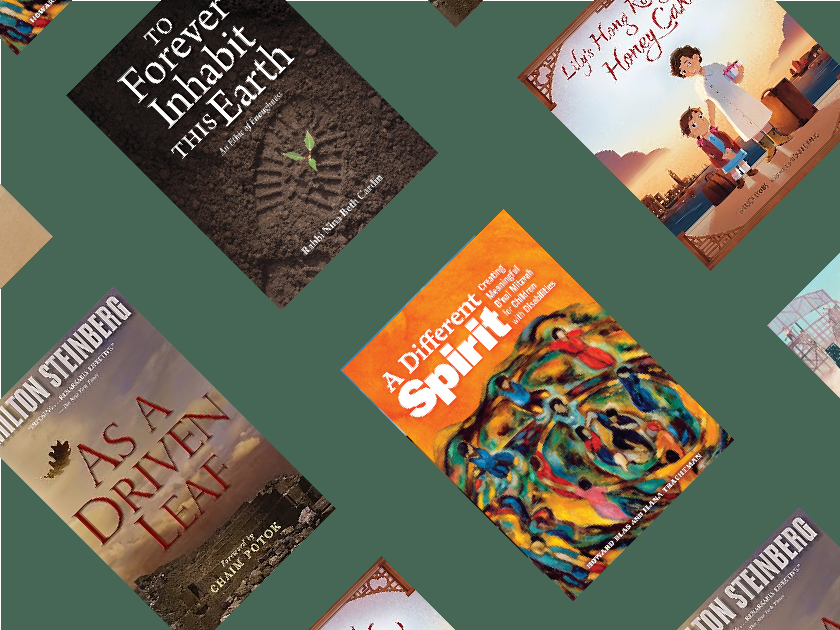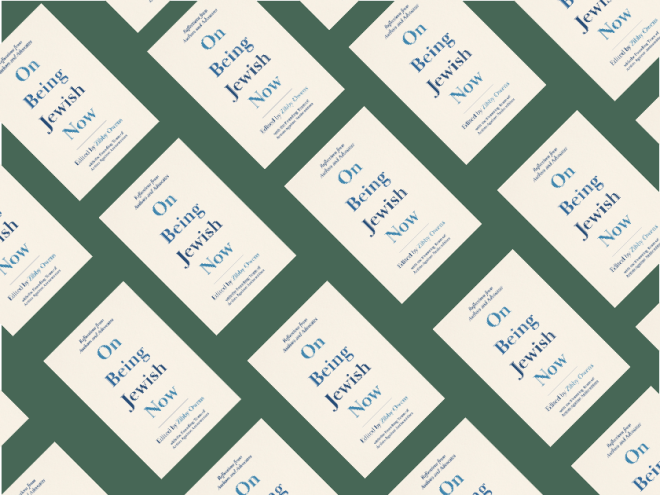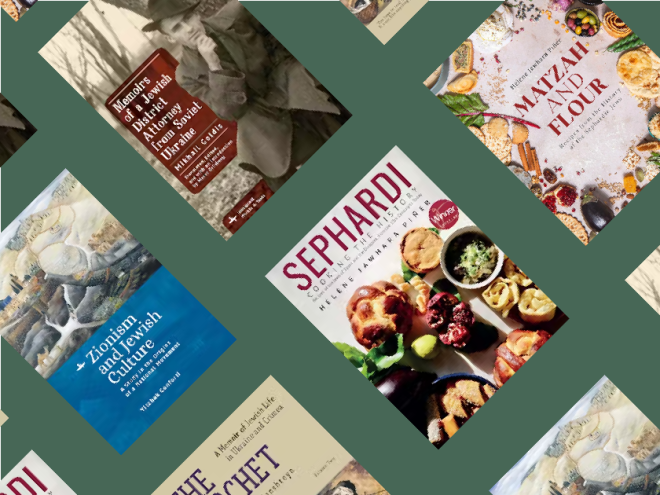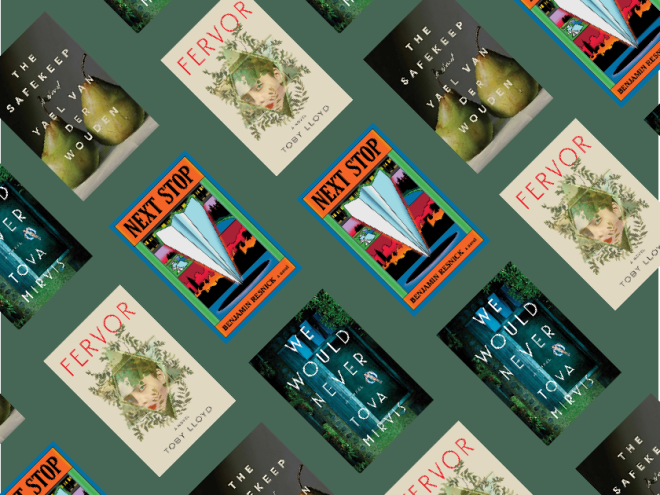
What’s the scoop on publishing? What Jewish books are agents, editors, and publishers especially excited for us to read? JBC’s series BookWatch is here to answer these frequently asked questions. Each month, a publishing insider writes an email to introduce themselves, give us a behind-the-scenes look at their work, and tell us about forthcoming Jewish books they can’t wait to usher into the world.
This piece originally appeared in a JBC email on Friday, April 25. Sign up here for our emails to be one of the first to know the latest Jewish literary news!
Hello, JBC Colleagues and Friends,
I’m David Behrman, President and Publisher of Behrman House. This firm was founded by my grandfather in 1921 and has remained under family leadership ever since; we now boast over one thousand titles in print, releasing twenty-five to thirty new ones each year. It’s a source of pride here at Behrman House that we offer a wide array of books for our communities throughout North America and for English speakers around the world. For children, books to engage with Judaism through the art of storytelling. For adults, the opportunity to bring new meaning to Jewish life and practice. And for everyone, a deeper understanding of the profound meaning that Judaism has to offer us in our modern lives.
Recently, there’s been much talk about the state of Jewish publishing: can Jewish writers and artists still find a publisher, and an audience? A firm like ours, which remains mission-focused on Jewish subjects and readers and has been around for multiple generations, has a unique perspective. Events that look seismic are sometimes blips; those that may feel unique in our time often were experienced similarly by our fathers or our grandmothers. When you’ve been through a solar eclipse or two, it’s easier to remember that the sun will indeed come back. We remain fully on the hunt for great manuscripts and artists, for both adult and younger readers, that explore the range of Jewish experiences in today’s world.
Books That Grab Right Now
In the wake of October 7, we are compelled to reissue Milton Steinberg’s classic As a Driven Leaf, with a new, powerful, and possibly controversial foreword by Dara Horn that calls upon us to look at the novel through the lens of the tragedy and consequences of that day. Horn yanks us past the theme of assimilation versus traditionalism long associated with the book, seeing As a Driven Leaf as a call to explore the challenges of maintaining Jewish culture in a world that is too often bent on “conformity and conquest.” Still regarded as a major influence on contemporary Jewish life and thought, this gripping tale of renegade Talmudic sage Elisha Ben Abuyah’s struggle to reconcile his faith with the allure of Hellenic culture during the rabbinic age in Roman Palestine is one Horn invites us to read again for the very first time.
A second compelling read for right now is Nina Cardin’s To Forever Inhabit This Earth: An Ethic of Enoughness. The great work of today’s generation is preserving the earth for future generations. Rabbi Cardin asks: How can we repair the breach we have caused in our relationship with nature? She creatively uses deeply understood Jewish texts to challenge us to consider: How much do I — or any of us — really need? How do we know when we have enough? And she asks other questions, both spiritual and practical, that can help each of us begin to answer those questions for ourselves, so that we may develop the collective will that is essential if we are to take the actions we need to live (adequately, not ascetically) while allowing the earth to thrive as well.
And at a time when we see so many turning against support of diversity and inclusion, we are proud to be releasing A Different Spirit: Creating Meaningful B’nai Mitzvah for Children with Disabilities, to help clergy and families navigate the b’nai mitzvah experience in ways that lead to truly embracing celebrations. A range of essays and ideas from peers, parents, and experts provide inspirational and practical guidance on planning a celebration, managing accommodations and physical settings, and teaching children with special needs.
Books for Children that Showcase the Variety of Jewish Experience
Through our ten-year-old imprint, Apples & Honey Press, we publish over twenty picture and chapter books each year. Apples & Honey focuses on great stories of the Jewish experience that help children explore their world through the lenses of Jewish values, diverse perspectives, and universal ethical themes; stories that help them build resilience and grit as they navigate the challenges of growing up and deciding who they want to be.
This year’s list takes children to Jewish communities far and wide and creates more windows into the Jewish immigrant experience with stories like Lily’s Hong Kong Honey Cake, set in Shanghai during and after World War II; A Place Called Galveston, a story about Russian immigrants who skip Ellis Island and goes through Texas instead; and On the Wings of Eagles, spotlighting the dramatic Yemenite airlift Operation Magic Carpet. Meanwhile, we seek to broaden kids’ biography and nonfiction reading lists beyond stories of Anne Frank and Albert Einstein with a biography of the first Jewish (and first woman) president of Mexico, Claudia Said ‘Si’ (which will also be published in Spanish); Hallelujah, The Story of Leonard Cohen; and Maccabiah, The Long Ride to the International Sports Games.
And of course we are always excited by new ways to introduce young children to Jewish holiday celebrations, including: A traffic-jam inspired Passover in Israel (Roadside Seder), a pounce of playful kittens organizing a seder (A Purr-fect Passover), a Shabbat on wheels (Shabbat Shalom, the Trucks Come Home), and New Year celebrations explained messily by a young girl and her mischievous pup (Kayla and Kugel’s Super Sweet Rosh Hashanah).



